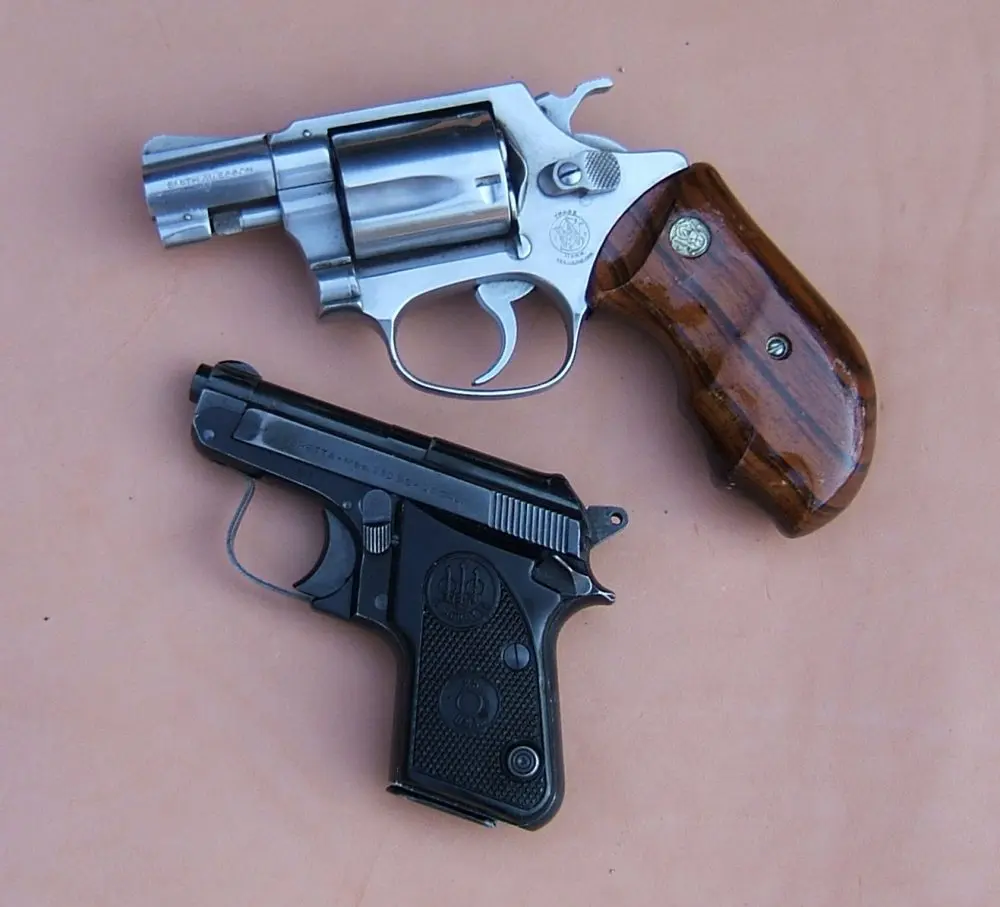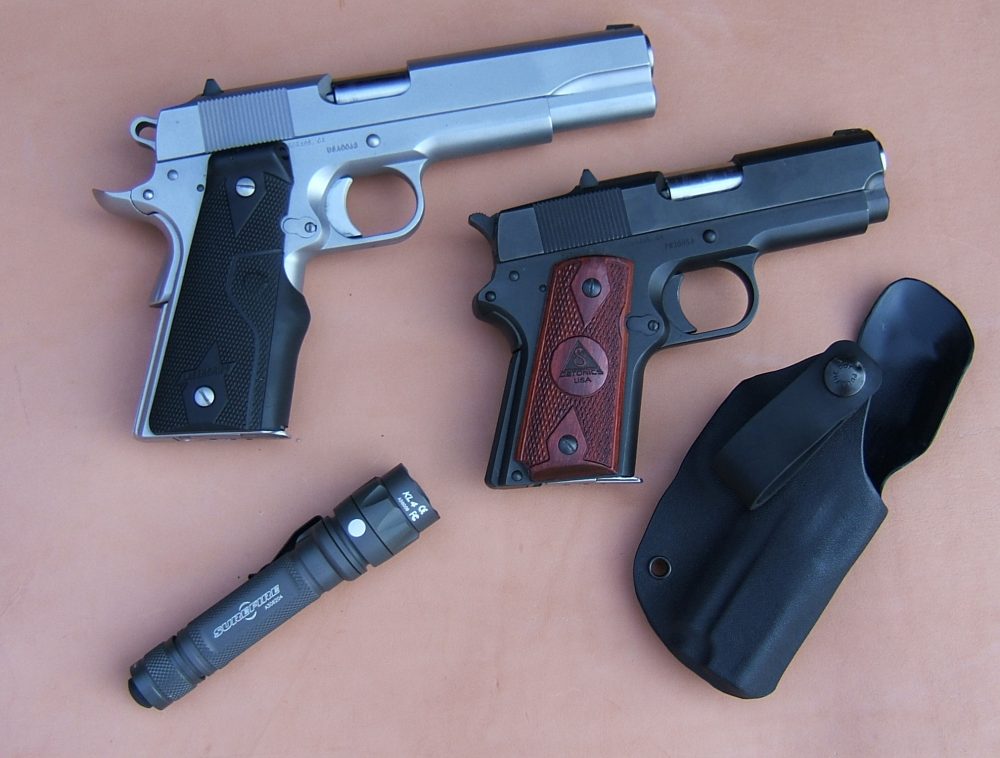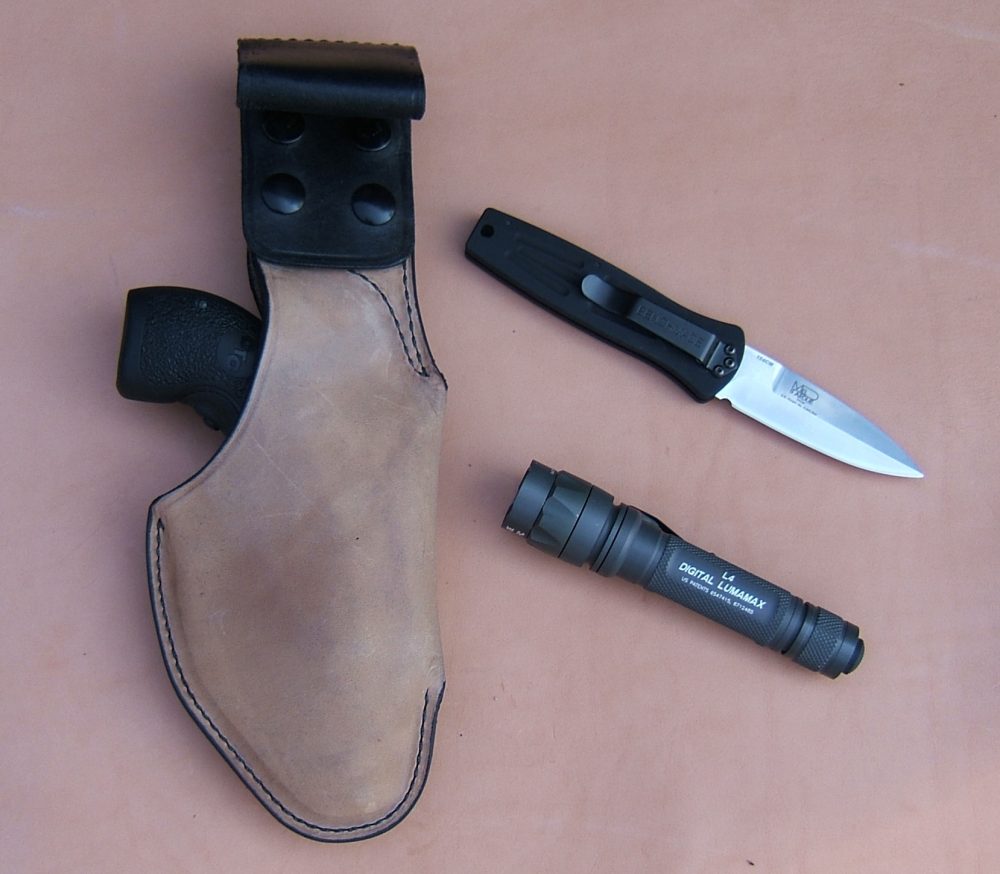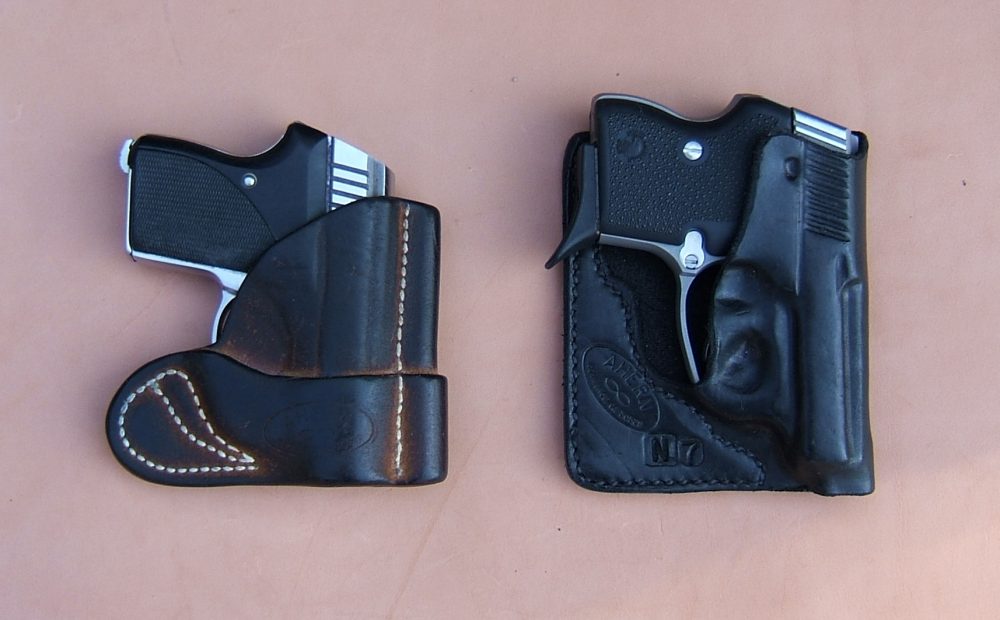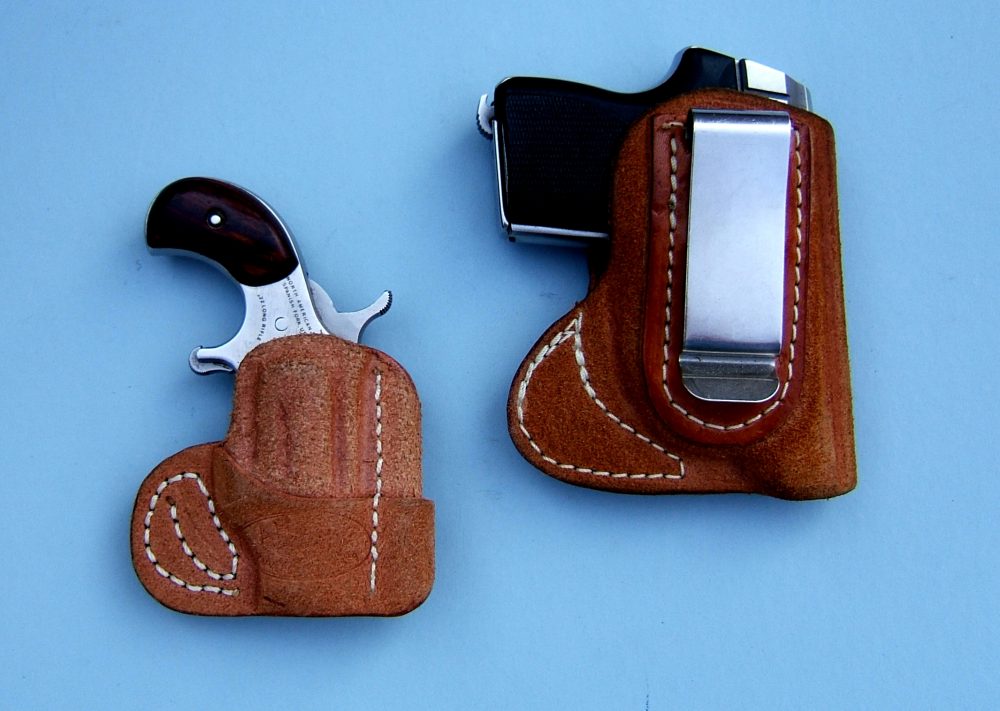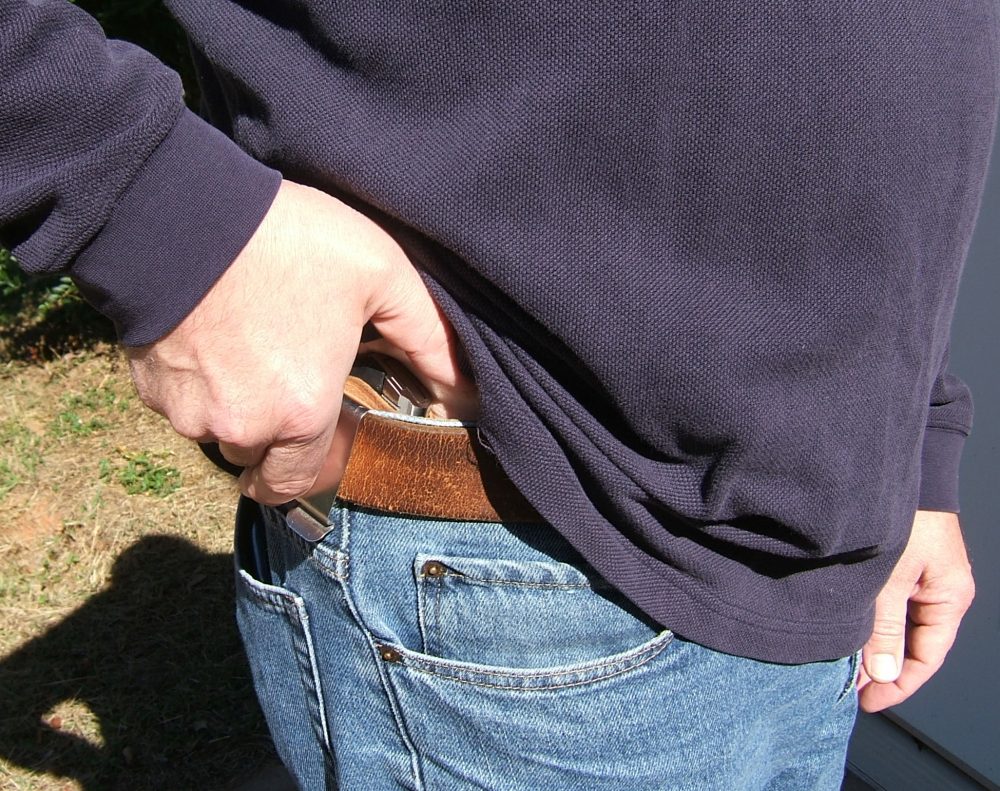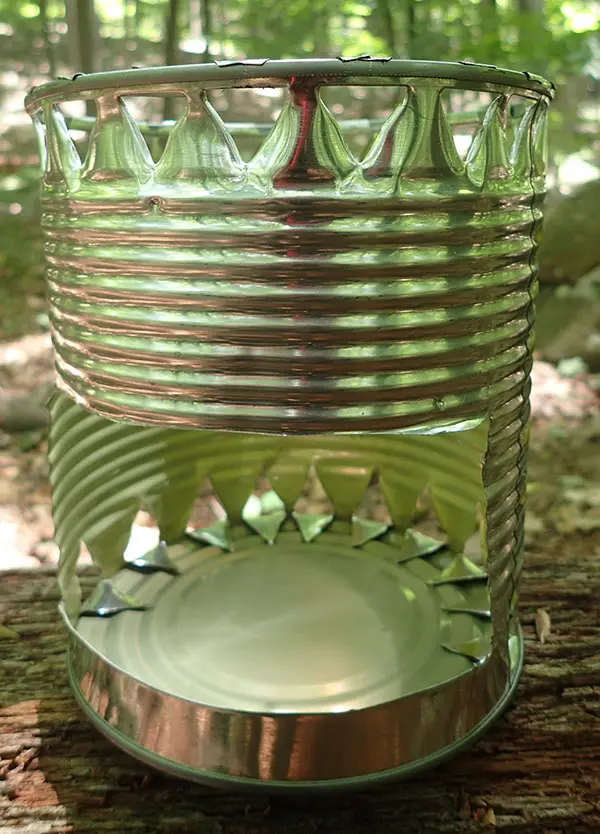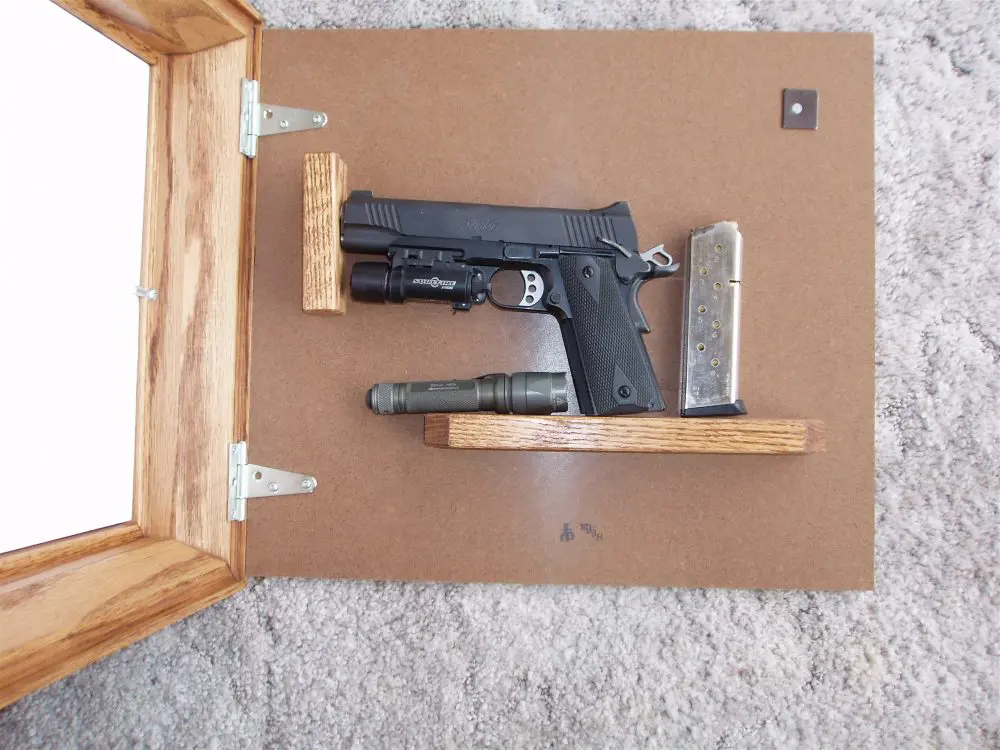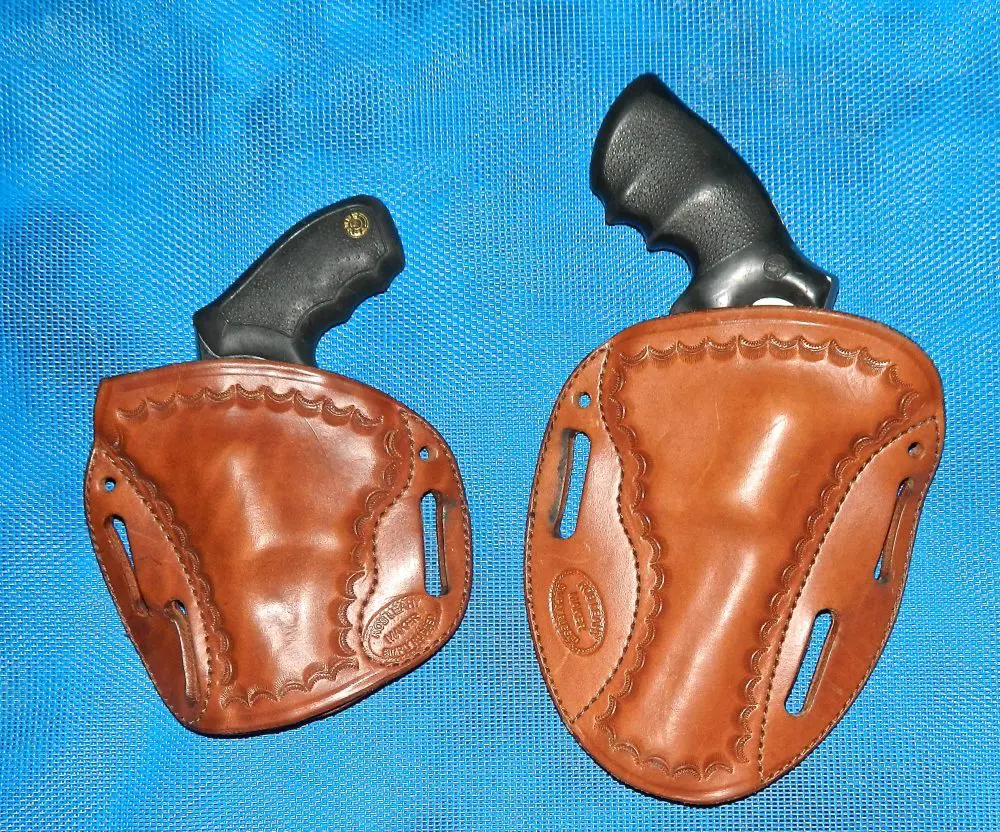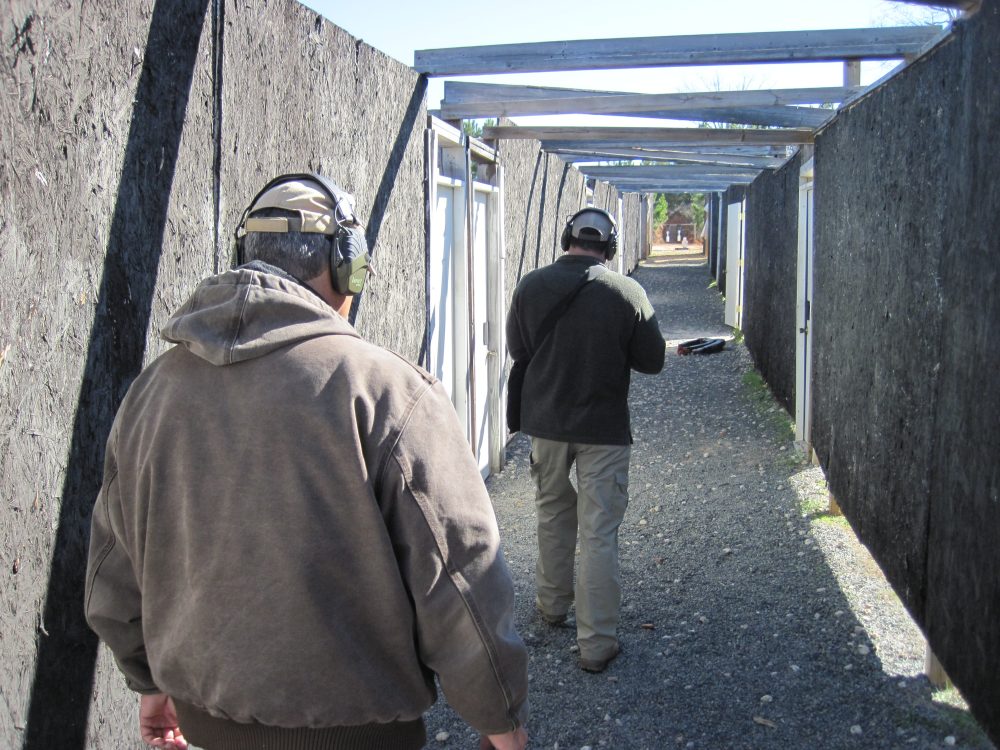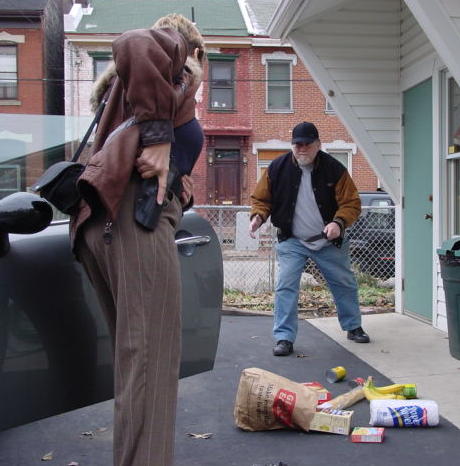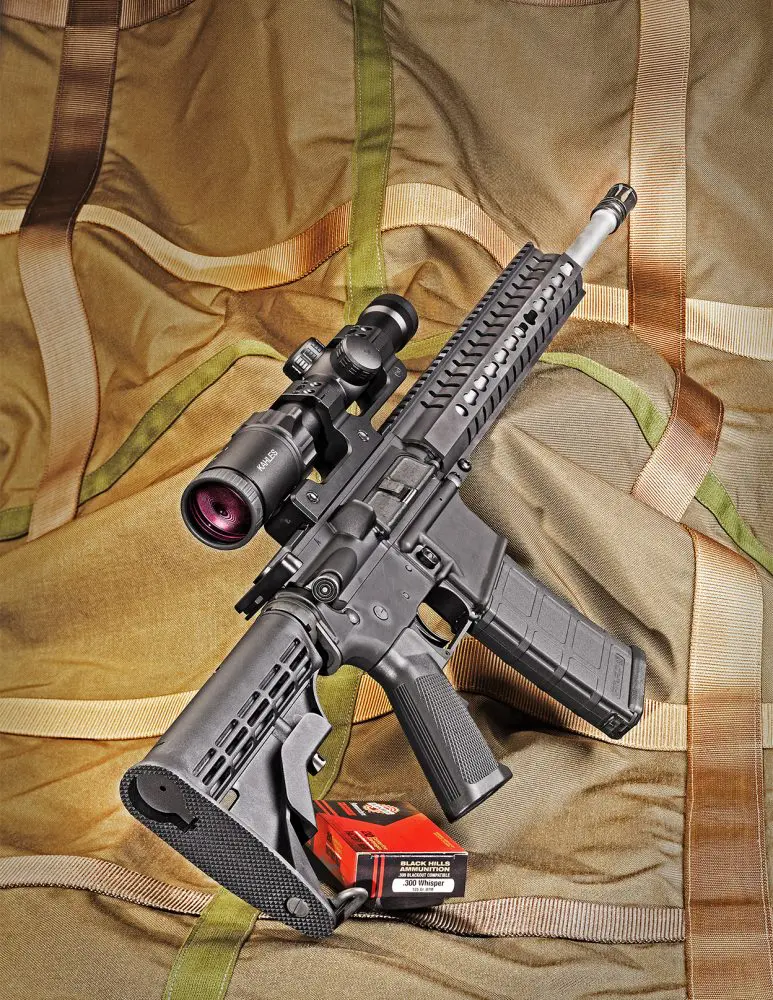Model 60 Smith & Wesson .38 Special sporting S&W Goncalo Alves Combat Stocks shown with Beretta 950BS—one of the best .25 automatics ever made. Guns such as these were classic backup or off-duty handguns before the era of larger calibers in smaller handguns.
In years gone by, if a backup weapon were carried at all, it would often be a .38 Special “Snubby” revolver or a .25 automatic. In rural areas, perhaps an antique Remington O/U Derringer in .41 Rimfire would be carried. The real cutting-edge, modern guys had a North American Arms .22 Short Mini Revolver stoked with foreshortened .22 LRs (enough lead would be removed to make the bullet flat and short enough to fit in the cylinder), with the diminutive ordnance hidden inside a pack of cigarettes. Two-inch barreled .38 Special revolvers are still good backup guns,and there’s nothing wrong with that Mini Revolver as a backup to your backup, but today the choices for backup are vastly more diverse.
Before selecting backup weapons, a law enforcement officer must confirm his or her departmental policies, guidelines and the like. Assuming realistic backup weapon policies—backups are allowed and the officer has wide latitude in their selection—it is the officer’s obligation, if the department does not mandate it, that he or she practice regularly with any backup firearm and document such practice in the event a backup firearm is actually used. Otherwise, the potential for liability-related consequences could be significant. Private citizens have more latitude in their selection of a backup weapon, though the importance of regular training is the same for law enforcement.
.45 autos come in all sizes. At top is Detonics Model 9-11-01 in natural stainless finish with Crimson Trace Laser Grips. Below it, a CombatMaster, also in .45 ACP, finished in “Detonics Black.” Holster is from Grandfather Oak. Flashlight is SureFire L4 Digital LumaMax.
Table of Contents
SMALL-CALIBER HANDGUNS
What kind of backup weapon should be selected? Again, in days gone by, the idea was that the little .38 Special snub used the same ammo as the uniform duty weapon—standard velocity 158-grain round-nosed lead. If you carry a .38 Snubby for backup, the ammo in its cylinder will now probably be +P or +P+, ammo that just didn’t exist in the good ol’ days except in handloads.
The majority of new two-inch barreled revolvers these days are in .357 Magnum, an idea of which I am in no way fond. When the guns themselves are made from super light metals, the combination of fly weight and .357 Magnum power creates a gun no one in his right mind would really want to shoot, thus discouraging practice.
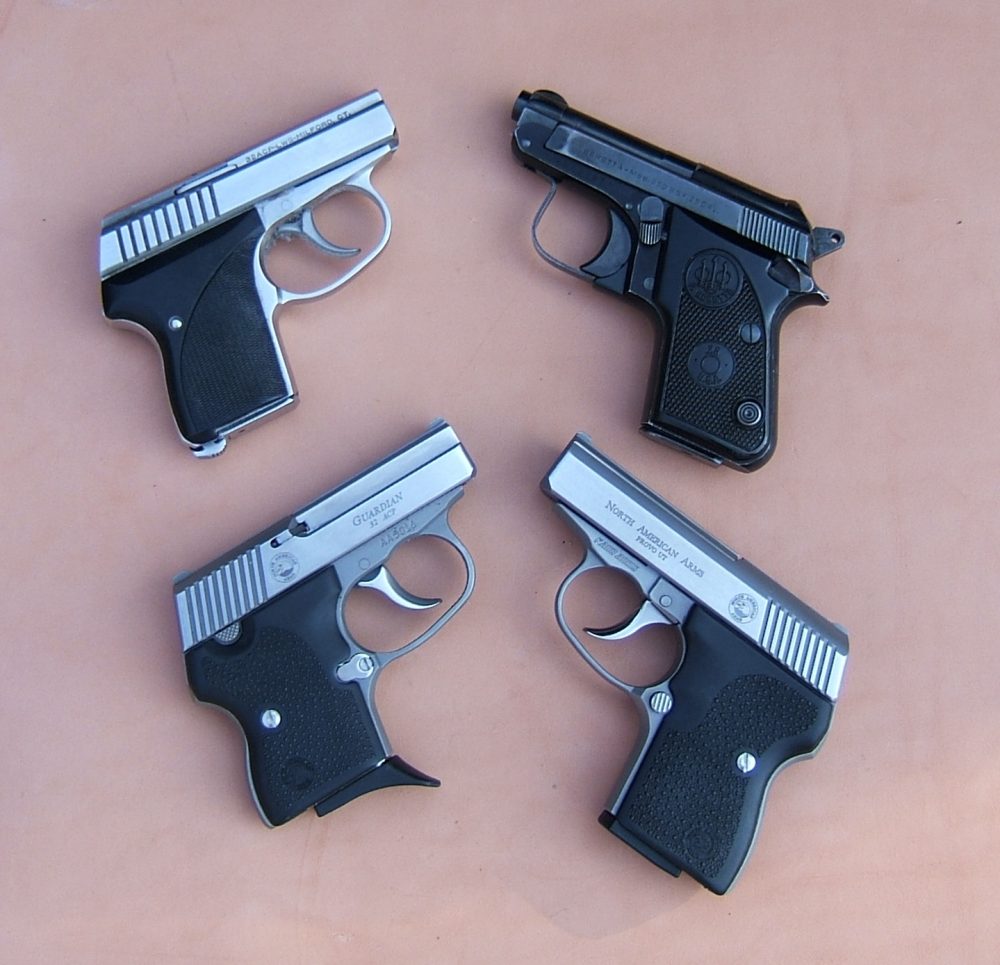
More likely than not, today’s backup gun (or guns) will be a semi-auto. To mention all the possibilities in backup ordnance would be impossible, but they can be examined by type. Although almost no police officer these days would carry a .25 automatic for backup, that same size handgun in .32 ACP or .380 ACP can make a satisfactory second gun and an even finer third gun, if one is so inclined.
The obvious choices in such a gun are the Seecamp .32 or .380 (they are perfectly identical in external dimensions), the Kel-Tec .32 or .380 (also identical in size), and the North American Arms Guardian .32 and the somewhat larger Guardian .380. Seecamp .32s have become more easily obtainable in the last few years. The Seecamps and the NAA guns are stainless steel; the Kel-Tecs are noticeably lighter to carry because of their polymer frames. They are also larger than the Seecamp in either caliber or the Guardian .32— about the size of the Guardian .380.
When Larry Seecamp originally introduced the .380 version of his pioneering pocket pistol, he envisioned a shorter service life than experience seems to indicate is the case. Ballistic data concerning the .32 ACP, even as a solid, is surprisingly good. However, since such a pistol would most likely be used in a life or death situation, and at extremely close range, choosing between these handguns comes down to nothing more than subjective preference based upon gut feeling, the recommendation of a friend or co-worker or even an article read in a magazine.
The larger .32s and .380s, such as the Walther PPK and the SIG 232, may be excellent handguns in their own right, but the same calibers and magazine capacities can be had in vastly smaller weapons and, if a handgun of this size is chosen, caliber choice can be 9mm, .357 SIG, .40 S&W or even .45 ACP. Why have a backup handgun in a small caliber when you can have a backup in a medium or large caliber? Often, weight is not even an issue.
Holster is crotch rig from Ken Null. The Crimson Trace Laser Gripped Model 640 it carries is accessed by going through the fly. Knife is Benchmade Model 3550 Pardue Auto.
LARGE-CALIBER HANDGUNS
Taking a page from the days of the 158-grain RNL .38 Special, why not have both your duty and backup handguns in the same caliber? Let’s suppose that your department utilizes the Glock 22, the full-size .40 S&W which is on the hip of many police officers in the United States. The logical choice in a backup gun, something which can easily serve for off-duty carry as well, would be the Glock 27. Glocks come with one spare magazine, but for the duty belt a police officer will normally carry two spares. Leave the Glock 27’s spare magazine at home if you wish and, should your primary ordnance be lost, damaged or otherwise out of commission, the Glock 22’s magazines will work just fine—albeit, hanging out the bottom of the magazine well—in your Glock 27.
Another advantage from the days of .38 Special revolvers can be imported to today. If an officer carried a Smith & Wesson on duty, the officer frequently carried a Smith & Wesson off duty. S&Ws roll their cylinders counter-clockwise, as seen from the operator’s perspective. Colts rotate clockwise. Similarly, the cylinder release catch on a Smith operates by pushing forward. With a Colt, it moves rearward. In a violent, perhaps potentially deadly, encounter, you want as much familiarity with your weapon as possible, and as much confidence. Knowing that the controls on your backup weapon are identical to those on your duty weapon can be a terrific confidence builder, and also a lifesaver.
Pocket holster at left is author’s own design, the Pocket Natural, with Seecamp .32. At right is right-handed hip pocket holster with North American Arms Guardian .32.
CORRECT CARRY
How the backup weapon is carried is extremely important as well. For example, with a small semi-auto such as the Seecamp or the Guardian .32, I normally recommend front pocket carry for private citizens or peace officers in civilian attire. But a front pocket holster for a uniformed police officer is impractical. When someone in civilian clothes keeps his or her hand in a front pocket, it looks casual and won’t normally precipitate undue interest. On the contrary, no one expects to see a uniformed law enforcement officer keeping his hand in a front pocket. Looks notwithstanding, it is impossible for many uniformed police officers to get their hands into their front pockets without a great deal of effort because the gunbelt closes off access to these pockets.
Hip pocket carry of a smallish handgun can work well for a uniformed officer. With citation books and business cards and all the other gear police carry, seeing a hip pocket with what looks like an extra wallet profiling under the material isn’t an attention getter. The only problem with a hip pocket holster is sitting on it. Sitting on a wallet is sometimes uncomfortable and can even cause skin irritation. A handgun, no matter how small, no matter how holstered, would certainly feel no better. A holster for any kind of pocket carry is a must, not only to help disguise the shape of the weapon, but also to keep the gun oriented as it should be for safe and reliable access.
Beyond the small .32s and .380s, pocket carry of any kind—certainly hip pocket—will likely be impractical for the uniformed officer. The ankle holster can be a practical solution. Some models from certain makers are available with ankle band extenders, which will allow the holster to be worn over a pair of boots, with the extender in place, and with shoes, with the extender removed. Ankle holsters, when properly worn, are positioned on the inside of the off-gun ankle. In other words, a right-handed person will wear the ankle holster on the inside of the left ankle. Wear the gun on the outside of the ankle and the weapon will bang into everything you walk near and be much more likely to be spotted. If you are right handed and have a weak or otherwise bothersome left ankle, wear the gun with the butt forward on the inside of the right ankle as needed.
There are specialty products that can be utilized for concealed carry of a backup gun, specifically underwear-like shirts with built-in holsters and belly bands which incorporate holsters. The latter will likely interfere with the duty gear, and the former will almost certainly prove incompatible with body armor. There are holsters designed to attach to the protective vest, usually positioning the gun as if it were in a shoulder holster. Depending on means of attachment, gun weight, and ease and rapidity of access to the gun, such holsters can either be quite useful or not useful at all.
At left, .22LR Mini Revolver from NAA, shown in front pocket holster. At right, Seecamp in more-or-less typical inside waistband holster featuring spring steel belt clip.
WHY BACKUP?
The role of the backup gun is basically two-fold: If the primary ordnance is disabled, etc., the backup comes into play. If a person has, for some reason, been disarmed, the backup weapon might mean the difference between stopping the perpetrator and being murdered. For this latter reason, concealment is extremely important. Some may scoff at the idea of an ultimate last-ditch weapon, but it never hurts to be prepared for the worst.
KNIVES
Being prepared doesn’t just mean with a backup gun. In the same spirit of preparedness, the knife can be considered a vital accessory. A police officer may need to cut away seat belts, etc., but a reliable knife that can be quickly accessed from concealment can have other uses.
Knives are more easily concealed than handguns, especially when there is careful selection of a knife for size, weight and speed into operation. A knife with a “combo” edge, incorporating a standard edge as well as useable serrations, is a good first choice, as serrations are an asset when cutting through tough material. But, just as there are the primary handgun and the backup handgun, the concept may be just as useful when it comes to knives.
Proper inside waistband holster designed for maximum concealment will keep a small handgun like this Seecamp barely accessible above the belt.
The Mel Pardue automatic knife from Benchmade—the Model 3550 Pardue Auto—is a fine case in point (no pun intended). It weighs 2.9 ounces, including the attachment clip. The blade is a spear point, available with a straight or combo edge. The knife features an extremely reliable and easy-to-use lock, and when activated guards against accidental opening or closing. When closed, it measures 4.2 inches. Open, length overall is 7.1 inches and the blade itself is 2.9 inches.
This knife can be hidden almost anywhere and is so small and flat that it might well be missed in a hurried, amateurish search. Clip it anywhere that can be conveniently reached from a variety of positions, depending upon circumstances at the time. It even features a lanyard hole in the butt. This could allow the knife to be worn in some rather non-obvious places.
A larger knife as a backup weapon may have added versatility and be used like a yarawa stick or kuboton.
As the role of law enforcement continues to expand in this post-9/11 world, police officers and private citizens have to be concerned with much more than all the usual hazards. The guy behind the wheel of your very next traffic stop could be a terrorist killer. Call for backup when it makes sense to do so, but carry backup as well.
SOURCES:
Benchmade Knife Company
Dept. S.W.A.T.
300 Beavercreek Road
Oregon City, OR 97045-4142
(800) 800-7427
www.benchmade.com
Crimson Trace Corporation
Dept. S.W.A.T.
8089 SW Cirrus Drive
Beaverton, OR 97008
(800) 442-2406
www.crimsontrace.com
Grandfather Oak Custom Carry
Dept. S.W.A.T.
76 Grandfather Oak Road
Roxboro, NC 27574
(919) 612-8924
www.grandfatheroak.com
K.L. Null Holsters
Dept. S.W.A.T.
161 School Street, N.W.
Resaca, GA 30753
(706) 625-5643
www.klnullholsters.com
L.W. Seecamp Co., Inc.
Dept. S.W.A.T.
280 Rock Lane
Milford, CT 06460
(203) 877-3429 (fax)
www.seecamp.com
North American Arms
Dept. S.W.A.T.
2150 South 950 East
Provo, UT 84606-6285
(800) 821-5783
www.NorthAmericanArms.com
Sure-Fire, LLC
Dept. S.W.A.T.
18300 Mount Baldy Circle
Fountain Valley, CA 92708
(800) 828-8809
www.surefire.com
